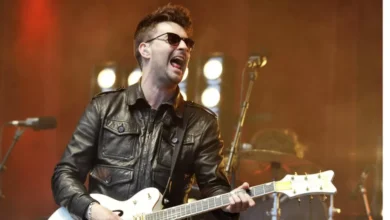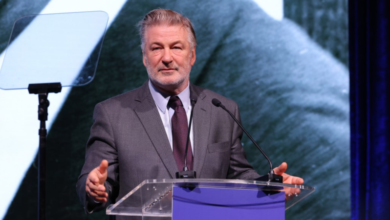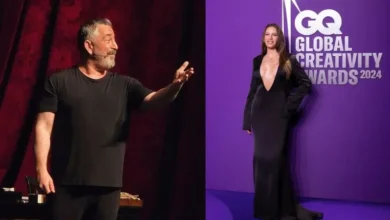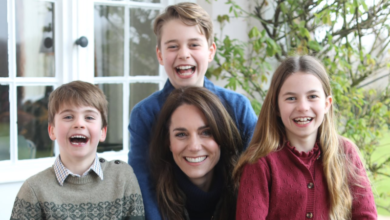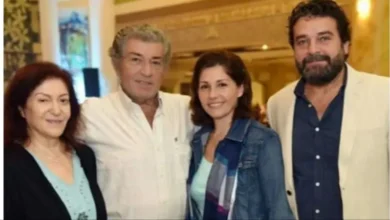Lise Davidsen on singing at the Last Night Of The Proms, one year late
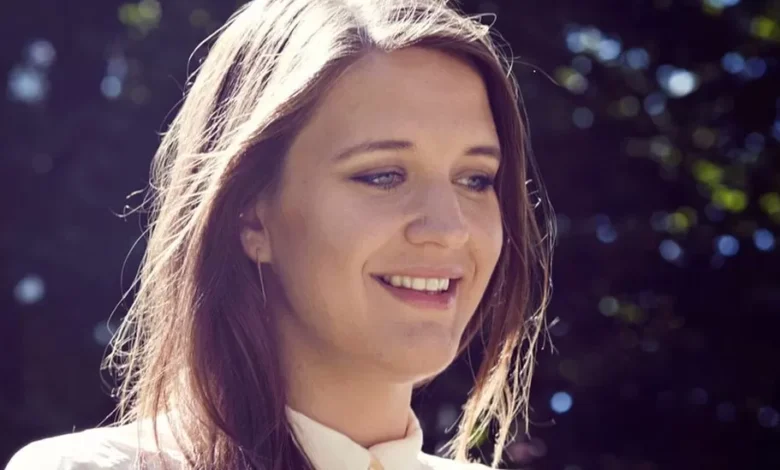
When Lise Davidsen takes centre stage at the Last Night of the Proms on Saturday, it will be the fulfilment of a long-standing commitment.
The world’s most in-demand soprano, she was originally due to play the concert last year, only for it to be called off when Queen Elizabeth II died.
She was “deep into rehearsing Rule, Britannia” with the BBC Symphony Orchestra when the news came.
“You couldn’t help but feel a bit disappointed,” she says.
Calling off the concert was the “right decision”, she adds.
“It felt, for me, like a memory of the first part of Covid. You totally understand why it’s happening but, on the other hand, everyone felt this sort of empty space, because were all super excited and very focused”.
Despite her hectic concert schedule, which is planned four to five years into the future, the Norwegian singer was able to accommodate a return to the Proms this year, where she will perform alongside star cellist Sheku Kanneh-Mason.
For many, this will be their first chance to see Davidsen, whose voice was once described by the New York Times as so “arrestingly powerful and visceral” that “you feel it as almost physical presence – pressing against your chest, raising the hairs on the back of your neck.”
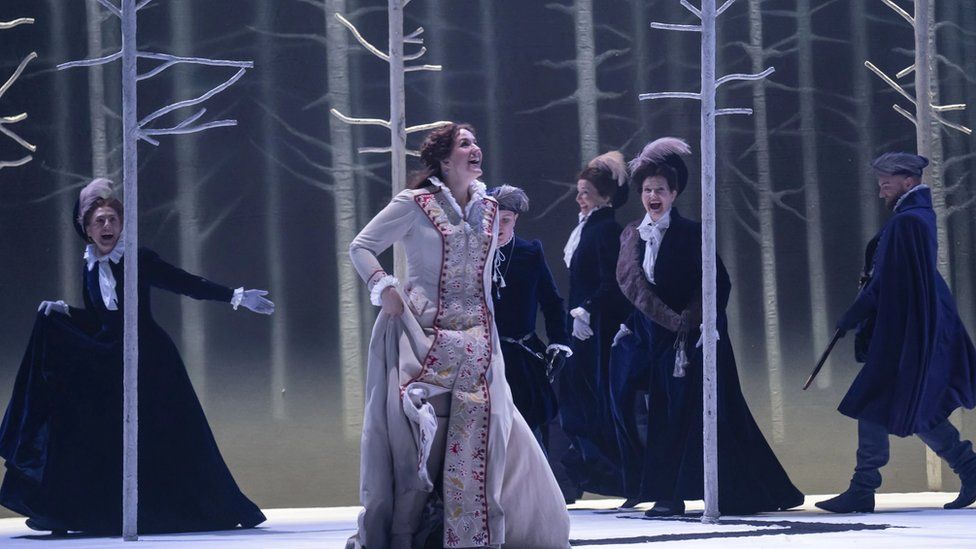
Likewise, she has never experienced the vaudevillian atmosphere of the Last Night, with all its flamboyant costumes and communal singalongs.
“We don’t have anything similar in Norway,” says the singer, who prepared for her debut by watching old clips on YouTube.
“I look forward to seeing the flags, I look forward to seeing people dressed up in whatever they want to wear and experiencing this shared joy when we sing together.”
“It’s the closest I get to being in a sports event!”
Traditionally, the soloists at the Last Night get involved in the circus-like atmosphere, In 2021, Australian tenor Stuart Skelton performed Rule, Britannia! in a full Aussie cricket outfit; while Sweden’s Nina Stemme dressed as a Valkyrie in 2017.
Davidsen, a cool, calm presence who stands at nearly six foot two, is opting for something more demure.
“I’m not going completely Norwegian, either as a troll or a Viking!” she laughs.
“I will stay with what I love the most. And that’s a good, nice dress.”
She might be one of opera’s biggest new stars, but Davidsen had an unusual route to the international stage.
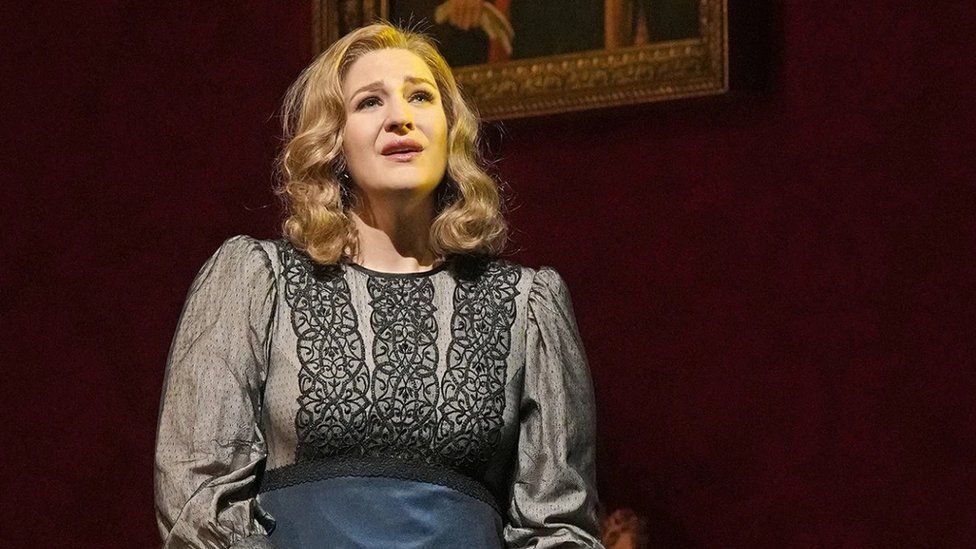
She was born in Stokke, Norway – a city with a population of just over 11,000 – and didn’t see her first opera until she was 20 years old.
Classical music was barely a presence in her house. Her mother, who worked in a care home, and father, an electrician, were more into sports. But on the way to handball matches, the car stereo would play Eva Cassidy and Joni Mitchell, inspiring Davidsen to learn guitar in her teens.
At Christmas, she would perform with the church choir; and eventually a school teacher advised her to study singing as a soloist.
That led her to the Greig Academy in Norway, where she achieved a bachelor’s degree in classical singing. And it was there that she saw her first opera, Richard Strauss’s Der Rosenkavalier.
Enamoured by the production, she nonetheless discounted the idea of taking up opera herself (“it seemed as impossible, as if I would speak Chinese tomorrow,” she once said).
Then, during a master’s degree in Copenhagen, a teacher said she had the potential to be an operatic soprano.
It was a change that required her to ditch her previous mezzo-soprano repertoire and learn an entirely new vocal technique; but the rewards were almost immediate.
In 2015, she was catapulted onto the international stage after winning back-to-back prizes at the Queen Sonja and Operalia competitions, and the world came calling: Glyndebourne, the Royal Opera House, Bayreuth, the Berlin Opera, the Met, the Proms.
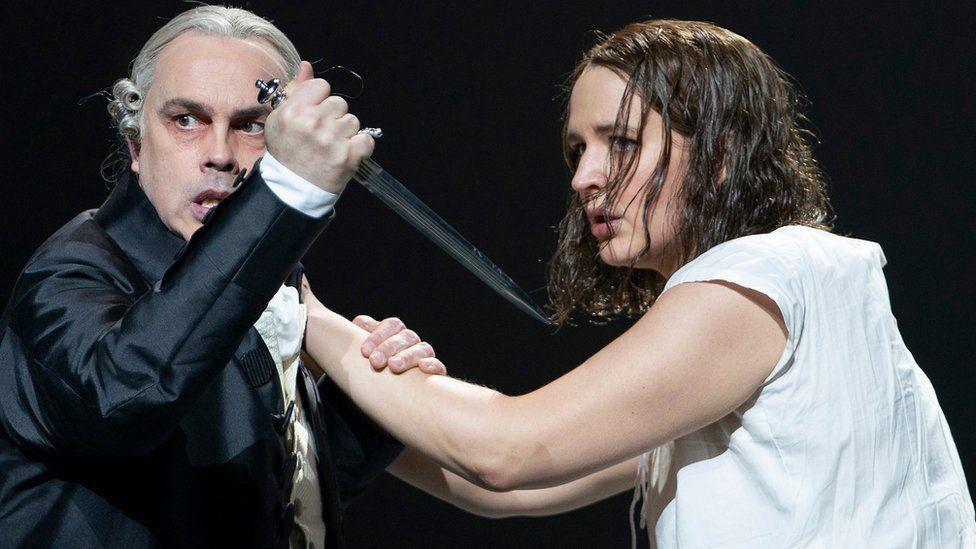
Does she think her late arrival to opera helped her stand out?
“Yes and no,” she says carefully.
“I always think that my colleagues, who’ve been brought up with classical music, have a bigger view on what’s been recorded and what’s been done – and so therefore you might make your choices differently.
“But I think maybe it’s helped my approach, in terms of singing – because I have been singing based on the fact that I really enjoyed it and I wanted to get better, and I haven’t had my mum hovering over me saying, ‘you should practise, you should practise’.”
When Covid struck in 2020, she was singing Leonore in Fidelio at the Royal Opera House. Davidsen caught the virus during dress rehearsals, before anyone really knew what it was.
At first she thought her sudden lack of energy was fatigue, and she was somewhat relieved when the diagnosis came through.
But a second brush with the disease last winter posed a serious threat to her career.
“I lost my voice completely for three weeks,” she says.
“I could talk, I could do day-to-day things, but I couldn’t sing, I couldn’t go for a run, I couldn’t do those extra things.
“It sort of put my muscles out of work. They wouldn’t do what I told them to do.”
‘I don’t read reviews’
It took an intensive process of vocal exercises to build her strength back up, but she persevered just in time to deliver her first major Verdi role, as Don Carlo’s Elizabeth de Valois, at the Royal Opera House.
Reviews for the production were mixed, but Davidsen’s performance was universally praised. “Hers is the voice of a lifetime, still developing, still exploring,” wrote The Observer’s Fiona Maddocks. Not only that, but Davidsen “has developed into a moving actress”, said Gramophone’s Francis Muzzu. “Her performance will go down in the history books.”
All the accolades, however, passed her by.
“I don’t really read the reviews,” she says. “And it’s not to say that I don’t care, because I think it’s really important. But I have a very clear view of what I need to do from one show to the next and that’s my focus.
“When I retire, I will read the reviews.”
Retirement is a long way off. After the Proms, Davidsen heads straight to the Met in New York for a solo recital, while next year will see her playing Giorgetta in Puccini’s Il Tabarro, and Leonora in Verdi’s La Forza del Destino, amongst other roles.
‘It’s quite magical’
Before that, however, she’s going back to her roots with an album of traditional Christmas music – O Holy Night, The First Noël, Silent Night.
Christmas remains her favourite time of year. A period when she can escape the demands of touring and international performance, and surround herself with home comforts.
“In Norway, we celebrate on the 24th of December. We’ll wake up late, watch some telly, very relaxed… Or rather, I’m relaxed because I have no responsibility for the food!
“And then often we go to church and there’s a nativity play where all the kids in the local area attend and they sing, and that is maybe my favourite part.”
Famously, of course, the country is swathed in darkness for most of December – and Davidsen says that makes the festive season seem even more special.
“There’s just a couple of hours of light during the day and then we’re surrounded by a lot of lights, a lot of candles. It’s quite magical.”
And has she converted her family to the wonders of opera yet?
“Oh yes! My parents, my sisters are converted – and I’m getting deep into converting my nephews as well.
“They’re more into Manchester United and rap, but my youngest nephew is coming to the Last Night of the Proms, so it’s never too late.”


